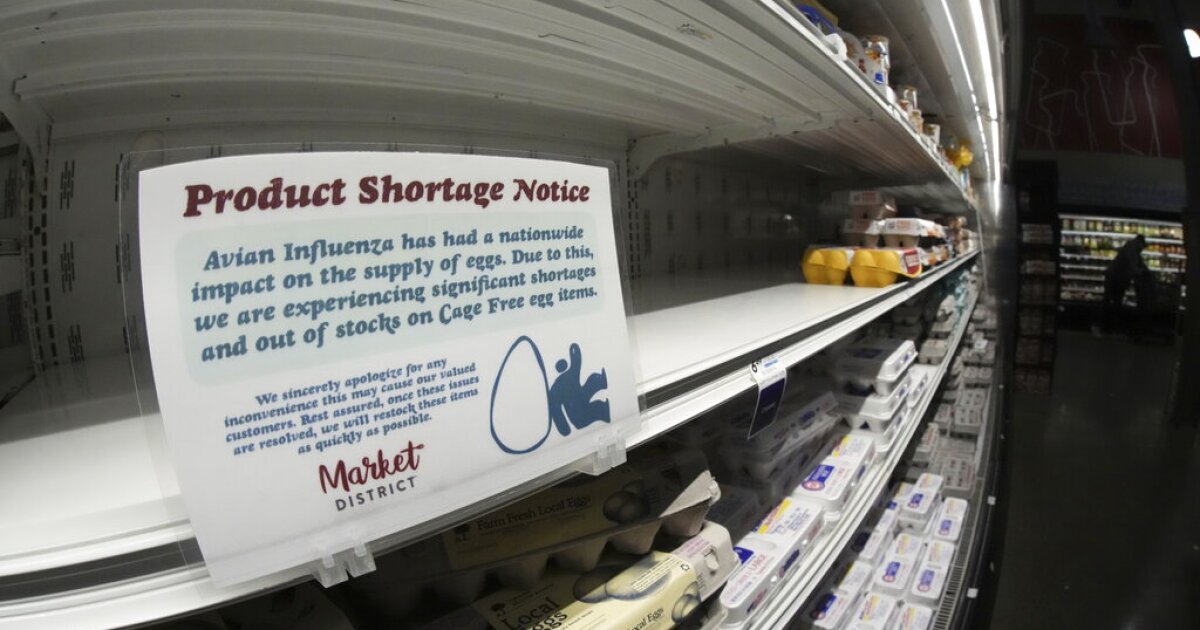

An outbreak of avian influenza that’s already infected more than 58 million poultry and 6,000 wild birds in the United States has recently begun to spill over to mammals, including humans in rare cases, spurring some fears that the virus could evolve and pose a greater risk to humans.
While only a few isolated cases of bird flu have been reported in humans so far, the World Health Organization has warned health officials to prepare for possible human outbreaks, as the disease has recently crossed into small mammals, including minks, otters, foxes, and sea lions.
DEMOCRAT CALLS ON BIDEN TO IGNORE ANY RULING RESTRICTING ACCESS TO ABORTION PILL
“For the moment, the WHO assesses the risk to humans as low,” said WHO Director-General Tedros Adhanom Ghebreyesus on Wednesday. “But we cannot assume that will remain the case, and we must prepare for any change in the status quo.”
This week, Argentina and Uruguay declared national health emergencies following bird flu outbreaks. Officials in Peru reported this month that 585 sea lions and 55,000 birds have been found dead in the country from bird flu. The first cases of bird flu among grizzly bears were reported last month in Montana.
Some health experts have said that the detection in small mammals is troubling, as they share physical similarities to humans.
Cases of bird flu have been tracked for decades, though the H5N1 strain spurred a global outbreak beginning in 2020. The current outbreak has spread through migratory birds to Africa, Asia, Europe, North America, and South America. Seven isolated cases of bird flu have been reported globally since January 2022, one of which was in the U.S., though no cases of sustained human-to-human spread have been identified.
People working at poultry farms are at greater risk, as humans, in rare cases, can become infected with the disease when coming into contact with infected birds or a surface that may be contaminated with their bodily fluids. Infections in humans can range from mild to severe.
The Department of Agriculture said last month it has taken steps to prevent infected poultry products from entering the market though noted there had been no evidence that properly “cooked poultry and eggs will cause bird flu infection in humans” as well.
Consumers are advised to wash their hands when handling raw poultry products, keep the raw products away from other foods, and thoroughly clean cookware that has come into contact with it.
“We cannot predict when the next influenza pandemic will occur or what virus will cause the next pandemic,” said Dr. Tim Uyeki, chief medical officer of the Centers for Disease Control and Prevention’s Influenza Division. “There are many kinds of avian influenza A viruses and swine influenza A viruses that have sporadically infected people worldwide. Therefore, constant vigilance and ongoing surveillance for novel influenza viruses worldwide is needed in people and animals — especially in poultry and pigs.”
CLICK HERE TO READ MORE FROM RESTORING AMERICA
The U.S. does maintain a stockpile of vaccines, including ones against bird flu, which the CDC said could be used if similar viruses began to spread more easily among humans.







